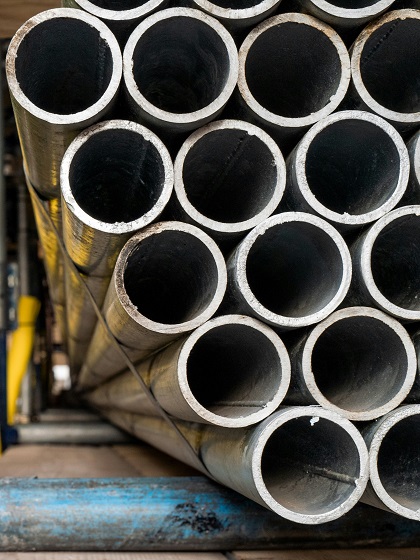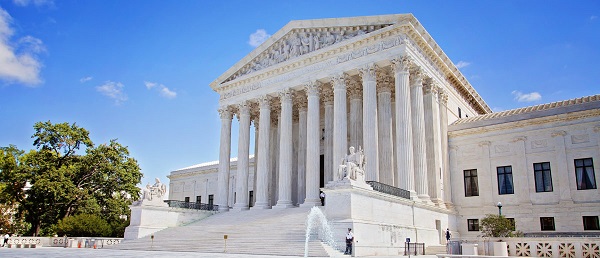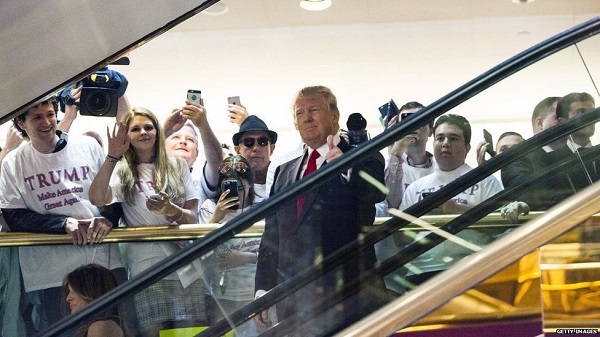Business
Trump imposes 25 percent tariff on all foreign steel, aluminum imports

Quick Hit:
President Donald Trump announced Sunday that he will impose a 25% tariff on all foreign steel and aluminum imports starting Monday. Speaking from Air Force One, Trump said the tariffs will apply to all countries, including key U.S. allies like Canada and Mexico. He also plans to unveil reciprocal tariffs on trading partners within days.
Key Details:
- Trump’s tariffs target steel and aluminum imports from all nations, including top suppliers Canada, Brazil, Mexico, South Korea, and Vietnam. Canada is also the leading source of U.S. aluminum imports.
- This move is part of Trump’s broader trade agenda, which has included tariffs on China and previous levies on Canada and Mexico. His first-term steel and aluminum tariffs sparked tensions with allies but led to renegotiated trade agreements.
- Trump’s proposal for reciprocal tariffs could trigger global trade disputes. He plans to announce these new measures midweek, stating, “If they charge us, we charge them.” Critics warn such tariffs could violate World Trade Organization rules.
Diving Deeper:
President Donald Trump announced a sweeping 25% tariff on all imported steel and aluminum, reigniting trade battles that defined his first term. Speaking aboard Air Force One while traveling to the Super Bowl, Trump confirmed that the tariffs would take effect Monday and apply to “everybody,” including major U.S. trading partners.
“Any steel coming into the United States is going to have a 25 percent tariff,” Trump said. “Aluminum, too.”
The decision marks a sharp escalation in Trump’s ongoing trade strategy, which has already led to tariffs on China and threats against European nations, Taiwan, and other key trading partners. Trump’s push for reciprocal tariffs—set to be detailed later this week—aims to raise U.S. import duties to match those imposed by foreign nations on American goods.
The impact of Trump’s steel and aluminum tariffs will be particularly significant for Canada, the largest supplier of both metals to the U.S. Other top steel providers include Brazil, Mexico, South Korea, and Vietnam. Aluminum imports primarily come from Canada, followed by the United Arab Emirates, Russia, and China.
Trump’s decision mirrors actions taken during his first term when he imposed broad steel and aluminum tariffs, triggering backlash from allies. He later eased restrictions on Canada and Mexico after renegotiating trade agreements. The Biden administration subsequently reached separate agreements with the European Union, the United Kingdom, and Japan, allowing some of those trade barriers to be reduced.
It remains unclear whether Trump’s new tariffs will be in addition to those still in place or replace existing measures. Either way, the move is likely to spark further retaliation from foreign governments.
Trump’s aggressive stance on trade has already disrupted global markets in recent days with frequent tariff threats. His proposed reciprocal tariffs, set to be announced Tuesday or Wednesday, are expected to take effect “almost immediately” and could violate World Trade Organization commitments.
“Very simply, if they charge us, we charge them,” Trump said.
As Trump moves forward with his latest round of trade measures, the global economic response remains uncertain. What is clear, however, is that his trade agenda remains a central pillar of his economic policy, setting the stage for renewed tensions with key allies and trading partners.
Alberta
Calgary taxpayers forced to pay for art project that telephones the Bow River

From the Canadian Taxpayers Federation
The Canadian Taxpayers Federation is calling on the City of Calgary to scrap the Calgary Arts Development Authority after it spent $65,000 on a telephone line to the Bow River.
“If someone wants to listen to a river, they can go sit next to one, but the City of Calgary should not force taxpayers to pay for this,” said Kris Sims, CTF Alberta Director. “If phoning a river floats your boat, you do you, but don’t force your neighbour to pay for your art choices.”
The City of Calgary spent $65,194 of taxpayers’ money for an art project dubbed “Reconnecting to the Bow” to set up a telephone line so people could call the Bow River and listen to the sound of water.
The project is running between September 2024 and December 2025, according to documents obtained by the CTF.
The art installation is a rerun of a previous version set up back in 2014.
Emails obtained by the CTF show the bureaucrats responsible for the newest version of the project wanted a new local 403 area code phone number instead of an 1-855 number to “give the authority back to the Bow,” because “the original number highlighted a proprietary and commercial relationship with the river.”
Further correspondence obtained by the CTF shows the city did not want its logo included in the displays, stating the “City of Calgary (does NOT want to have its logo on the artworks or advertisements).”
Taxpayers pay about $19 million per year for the Calgary Arts Development Authority. That’s equivalent to the total property tax bill for about 7,000 households.
Calgary bureaucrats also expressed concern the project “may not be received well, perceived as a waste of money or simply foolish.”
“That city hall employee was pointing out the obvious: This is a foolish waste of taxpayers’ money and this slush fund should be scrapped,” said Sims. “Artists should work with willing donors for their projects instead of mooching off city hall and forcing taxpayers to pay for it.”
Automotive
Supreme Court Delivers Blow To California EV Mandates


From the Daily Caller News Foundation
“The Supreme Court put to rest any question about whether fuel manufacturers have a right to challenge unlawful electric vehicle mandates”
The Supreme Court sided Friday with oil companies seeking to challenge California’s electric vehicle regulations.
In a 7-2 ruling, the court allowed energy producers to continue their lawsuit challenging the Environmental Protection Agency’s decision to approve California regulations that require manufacturing more electric vehicles.
“The government generally may not target a business or industry through stringent and allegedly unlawful regulation, and then evade the resulting lawsuits by claiming that the targets of its regulation should be locked out of court as unaffected bystanders,” Justice Brett Kavanaugh wrote in the majority opinion. “In light of this Court’s precedents and the evidence before the Court of Appeals, the fuel producers established Article III standing to challenge EPA’s approval of the California regulations.”
Kavanaugh noted that “EPA has repeatedly altered its legal position on whether the Clean Air Act authorizes California regulations targeting greenhouse-gas emissions from new motor vehicles” between Presidential administrations.
“This case involves California’s 2012 request for EPA approval of new California regulations,” he wrote. “As relevant here, those regulations generally require automakers (i) to limit average greenhouse-gas emissions across their fleets of new motor vehicles sold in the State and (ii) to manufacture a certain percentage of electric vehicles as part of their vehicle fleets.”
The D.C. Circuit Court of Appeals previously rejected the challenge, finding the producers lacked standing to sue.
“The Supreme Court put to rest any question about whether fuel manufacturers have a right to challenge unlawful electric vehicle mandates,” American Fuel & Petrochemical Manufacturers (AFPM) President and CEO Chet Thompson said in a statement.
“California’s EV mandates are unlawful and bad for our country,” he said. “Congress did not give California special authority to regulate greenhouse gases, mandate electric vehicles or ban new gas car sales—all of which the state has attempted to do through its intentional misreading of statute.”
-

 Business2 days ago
Business2 days agoCanada’s critical minerals are key to negotiating with Trump
-

 espionage1 day ago
espionage1 day agoFrom Sidewinder to P.E.I.: Are Canada’s Political Elites Benefiting from Beijing’s Real Estate Reach?
-

 espionage1 day ago
espionage1 day agoFBI Buried ‘Warning’ Intel on CCP Plot to Elect Biden Using TikTok, Fake IDs, CCP Sympathizers and PRC Students—Grassley Probes Withdrawal
-

 Alberta2 days ago
Alberta2 days agoUnified message for Ottawa: Premier Danielle Smith and Premier Scott Moe call for change to federal policies
-

 David Clinton1 day ago
David Clinton1 day agoWhy Are Ontario’s Public Schools So Violent?
-

 Economy2 days ago
Economy2 days agoOttawa’s muddy energy policy leaves more questions than answers
-

 Business22 hours ago
Business22 hours agoSenator wants to torpedo Canada’s oil and gas industry
-

 Bruce Dowbiggin21 hours ago
Bruce Dowbiggin21 hours agoFUBAR: How Trudeau & Trump Rewrote This Century’s Political Handbook






